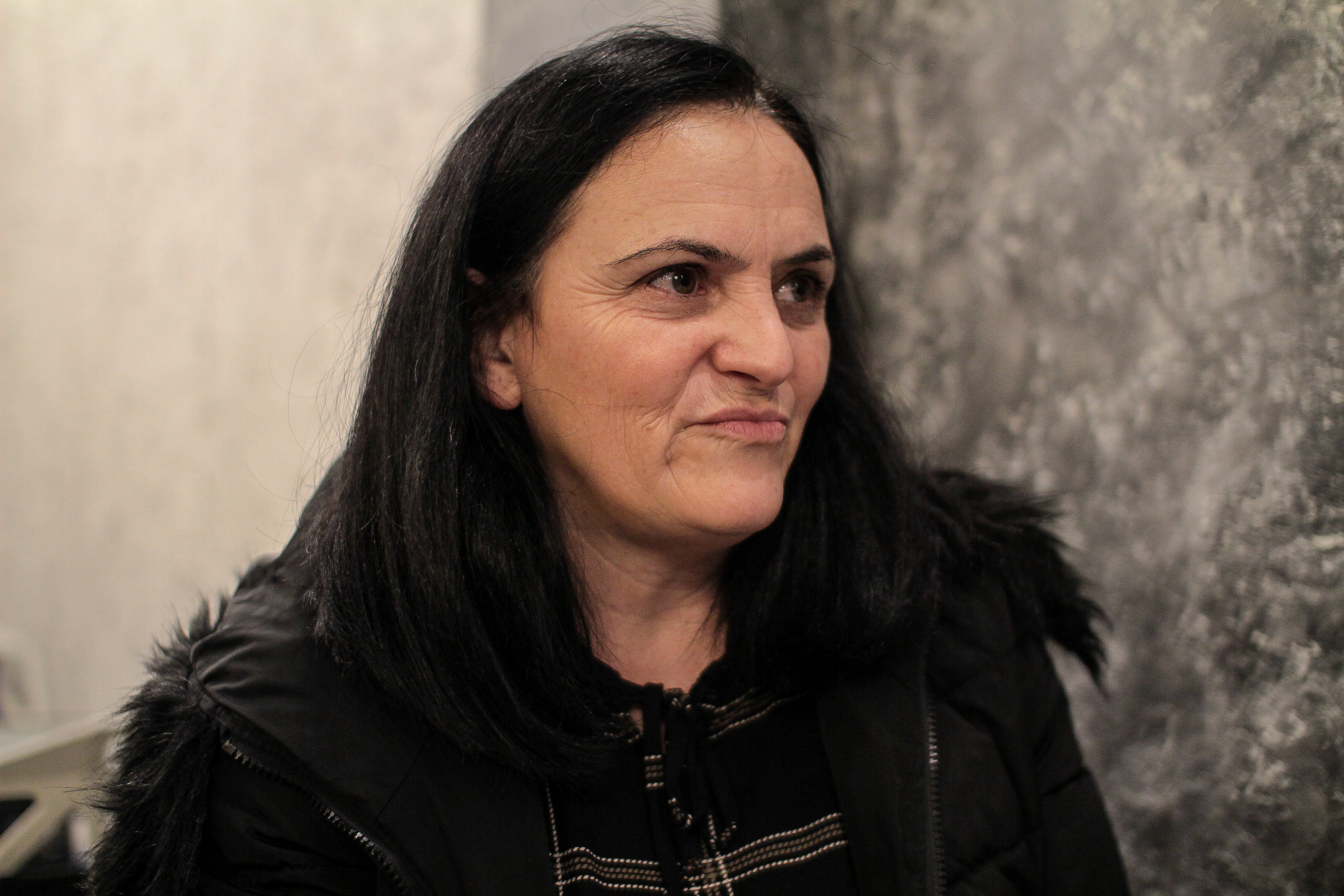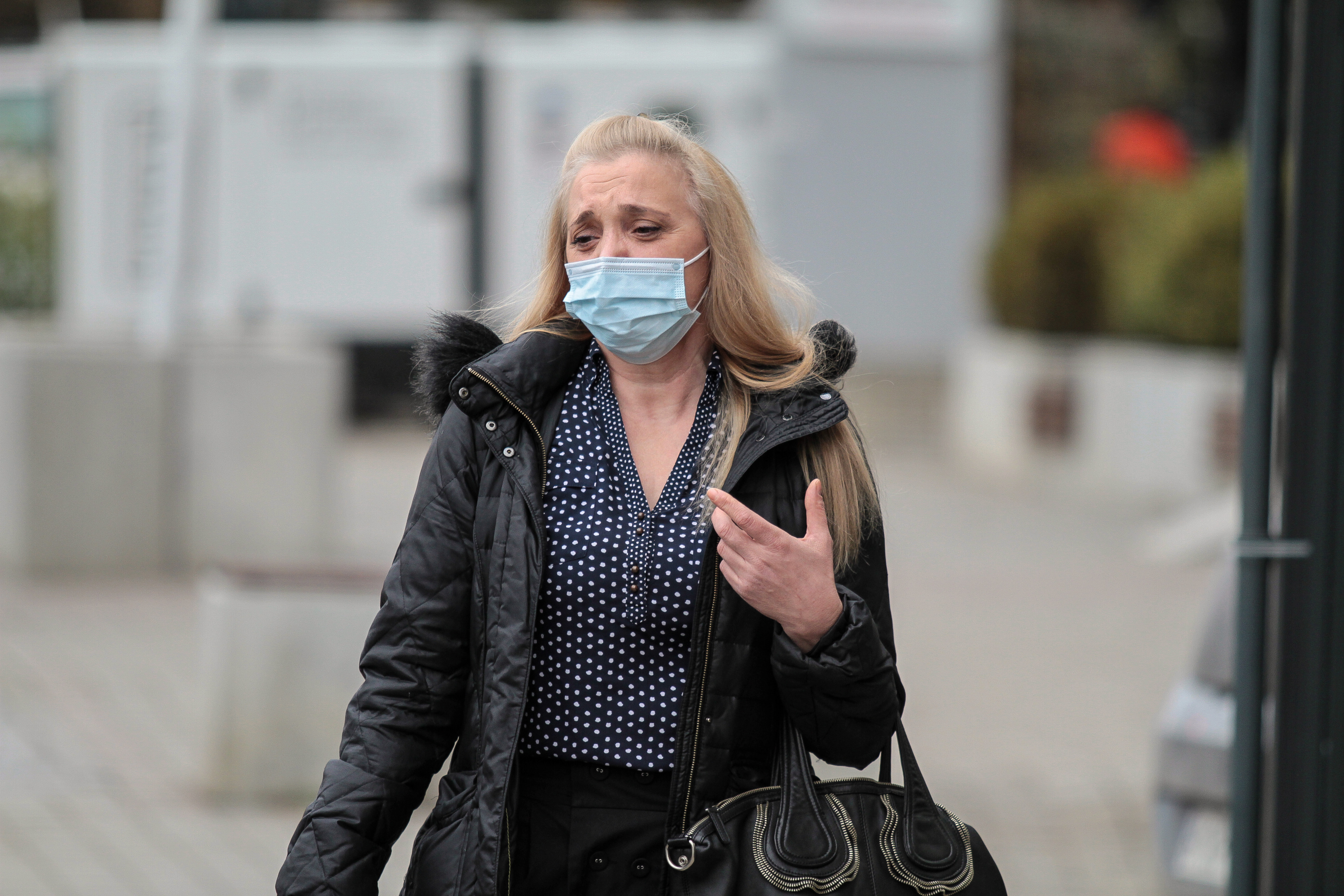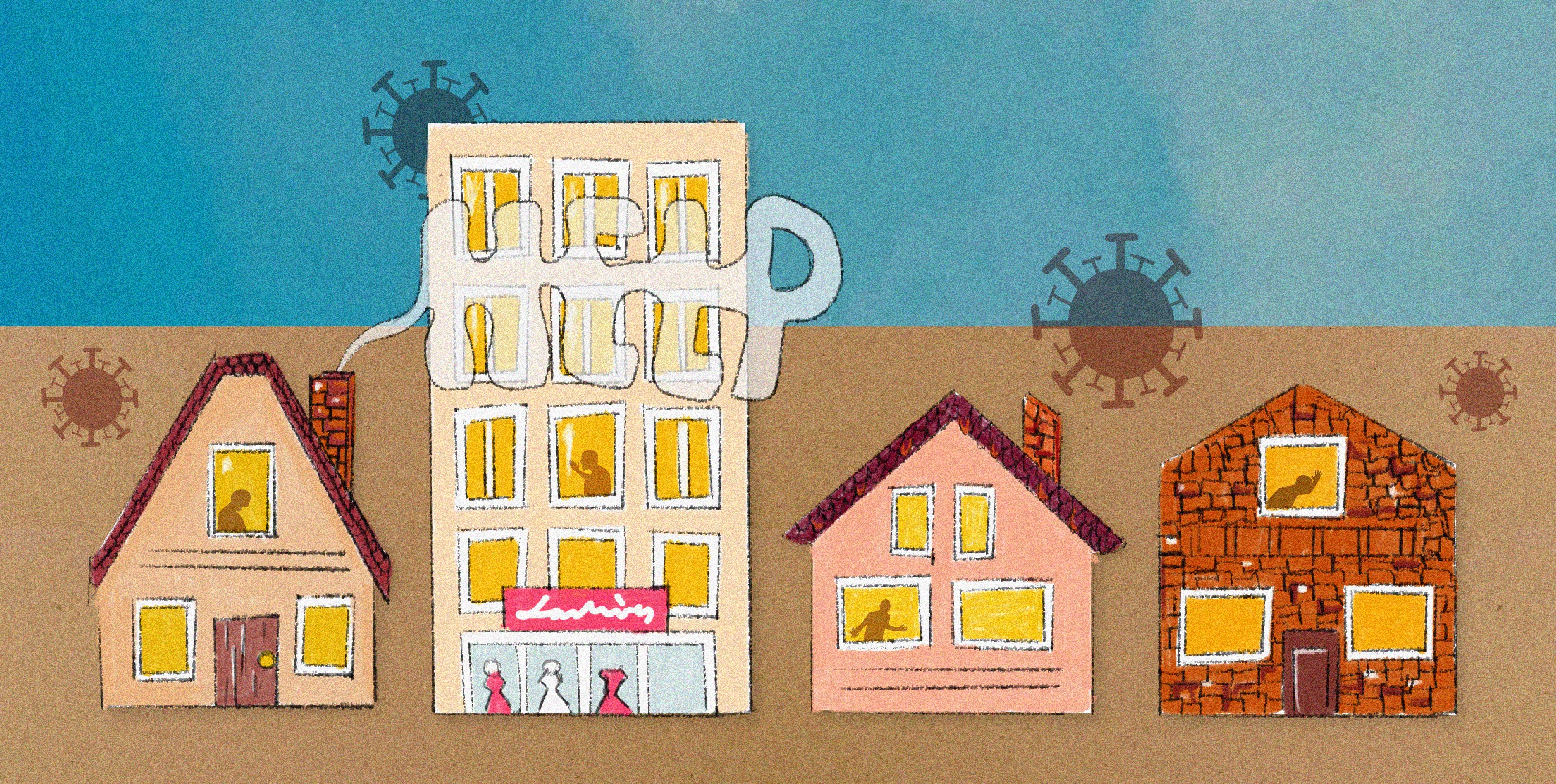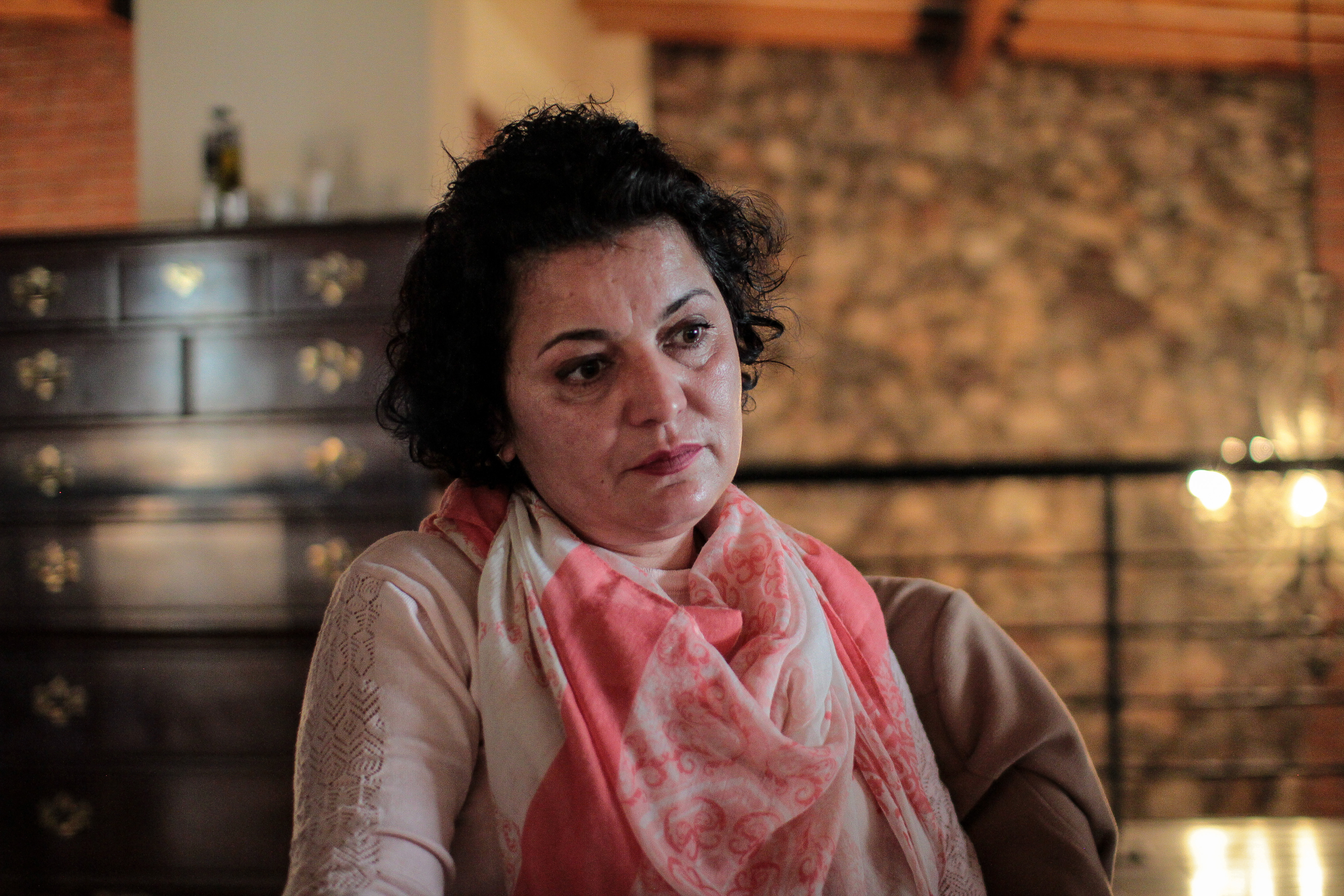Dealing with an influx of patients with coronavirus, working without a day off, coping with the loss of patients and losing any sense of a personal life – Kosovo’s nurses experienced a lot in 2020.
One year ago, in December 2019, health experts in China alerted the world that some patients were suffering from an unusual form of pneumonia. It was later discovered that the illness, now known as COVID-19, had been caused by a unique strand of coronavirus.
On March 13, only two days after the coronavirus outbreak was declared a global pandemic by the World Health Organization, the first two cases were confirmed in Kosovo.
That night, Shqipe Kadriu had just finished her night shift at the Infectious Disease Clinic in Prishtina and headed out for a coffee with some friends. It would be her last coffee outside of the hospital grounds for a long time.
Since March, the clinic has admitted more than 2,000 patients and supplied thousands more with treatment.
Kadriu recalls the early days of the outbreak with despair. For 20 years, the 50-year-old nurse has been walking from her flat in Prishtina to the clinic, but between March and May, when Kosovo was in total lockdown, the city’s stray dogs were her only company.
“During the curfew, Prishtina looked like a ghost town,” she tells Prishtina Insight. “I was only accompanied by stray dogs while walking to work – and even felt a bit safe with them.”
The coming months would be dangerous for Kadriu and other medical staff – all those fighting the coronavirus outbreak on the frontline. At least 1,200 nurses, midwives and other technical personnel in Kosovo have been infected with the coronavirus, while nine that tested positive for the virus have died.
As they battled the coronavirus outbreak, some of Kadriu’s colleagues became the first health staff in Kosovo to contract COVID-19. With eyes welling up, she remembers colleagues becoming patients and fighting for their own lives with oxygen therapy.
The end of May brought some relief as the number of those in hospital fell drastically, but it would not last for long. The exit from lockdown and reopening of borders rapidly pushed the numbers of COVID-19 patients in Kosovo’s hospitals up to around 700.
In the first week of July, six patients died from COVID-19 at the Infectious Disease Clinic. Their deaths raised questions, and the prosecution launched an investigation due to suspicions that oxygen tanks may have failed to supply the patients with enough oxygen.
Kadriu was on shift on that night. “I never experienced a night like that in my life; it was so difficult, and I hope it will never be repeated,” she recalls. “The experience had consequences for me for days after; the nights were dreadful, I couldn’t sleep and had anxiety.”
She doesn’t care to dwell on that awful event, not just because the case is still being investigated but because of the trauma it left with her.
Up until now, 1,240 people in Kosovo have died after testing positive for the coronavirus, while more than 48,300 persons have been recorded as infected.
Still, despite the difficulties in treating wave after wave of patients, and of working without any days off, Kadriu is determined to continue her work.
“Good moments are those when patients are cured and released from the clinic,” she says. “Every other loss during a pandemic can be compensated – but not the people.”
The nurse hopes that a sense of normalcy will return, and that she will soon be able to do things other than her job. “Theatre, films and books normally fill my life,” she says. “This year I didn’t even have the time to buy new books.”
No better feeling than a patient returning home
Dashurije Shehu is the chief pediatric nurse at the regional hospital in Ferizaj. Despite a difficult 2020, she does not hide her relief that she has still not experienced the death of a child in her department, in this year or any other.
However, the children’s unit has still undergone many challenges, as since June 28 it has been used exclusively for treating COVID-19 patients.

Dashurije Shehu, the chief pediatric nurse at the regional hospital in Ferizaj. Photo: Urim Krasniqi/Prishtina Insight.
Shehu tells Prishtina Insight that it was hard to see people succumb to the disease. “It is difficult when a patient in their last moments of life has all their hopes pinned on you,” she says. “You can see them putting their hope in you in their eyes, but you know… you can’t do anything about it.”
Shehu and her colleagues were given only five days off this year, but they could not even use those due to the shortage of healthcare professionals. At the hospital in Ferizaj, more than 630 patients have been admitted since July, while over 2,000 more obtained other services related to the coronavirus.
“In the summer, with the high temperatures, my throat and lips were completely dry so that I literally could not breathe; my uniform was all sweaty from the protective gear,” she recalls.
Shehu also has to take care of her 66-year-old mother, and her job limits the time she has for family members and herself. “I really miss the fresh air. When I go out of the ward and take some air, it feels like another world. I hope we get back to normality; but we must never forget,” she says.
Nurses in Kosovo often complain about bad working conditions and low salaries. A nurse is paid only about 400 euros a month on average. But for Shehu, the compensation for the hard work in these troubling days was seeing cured patients released from hospital.
“We get close to the patients because some stay in hospital for a month. There is no better feeling than when they return home after recovering and thank us for our care,” she says.
On the frontline of a second war
The battle against the pandemic is the second “war” that nurse Besime Dobratiqi has served in. She helped the sick during the independence war of the 1990s in Kosovo, which also involved treating wounded members of the Kosovo Liberation Army, KLA.
“Now we face a different war but I have never been afraid to do my job,” she tells Prishtina Insight. “For me, it is a pleasure to serve the sick, and I always do my best.”
During 2020, she worked at a Family Medicine Centre in Prishtina that since August has been dedicated to treating COVID-19 patients. More than 300 persons receive daily treatment at the Centre, while more than 16,500 services have been provided. Dobratiqi also worked at the dormitories at the University of Prishtina, which were turned into a ‘quarantine space’ and housed a total of more than 1,500 people between March and June.
She says that she never feared being infected by patients, but her real worry was infecting her own family: her husband, daughter and father-in-law, who all live with her.
Dobratiqi says this year has changed a lot for her, both as a nurse and as a parent. “I really missed hugging my daughter,” she says, melancholically. “Every time I go home, she wants to hug me and it’s painful to have to remind her that I cannot hug her. ‘Oh mum, I keep forgetting,’ she’d say.”








